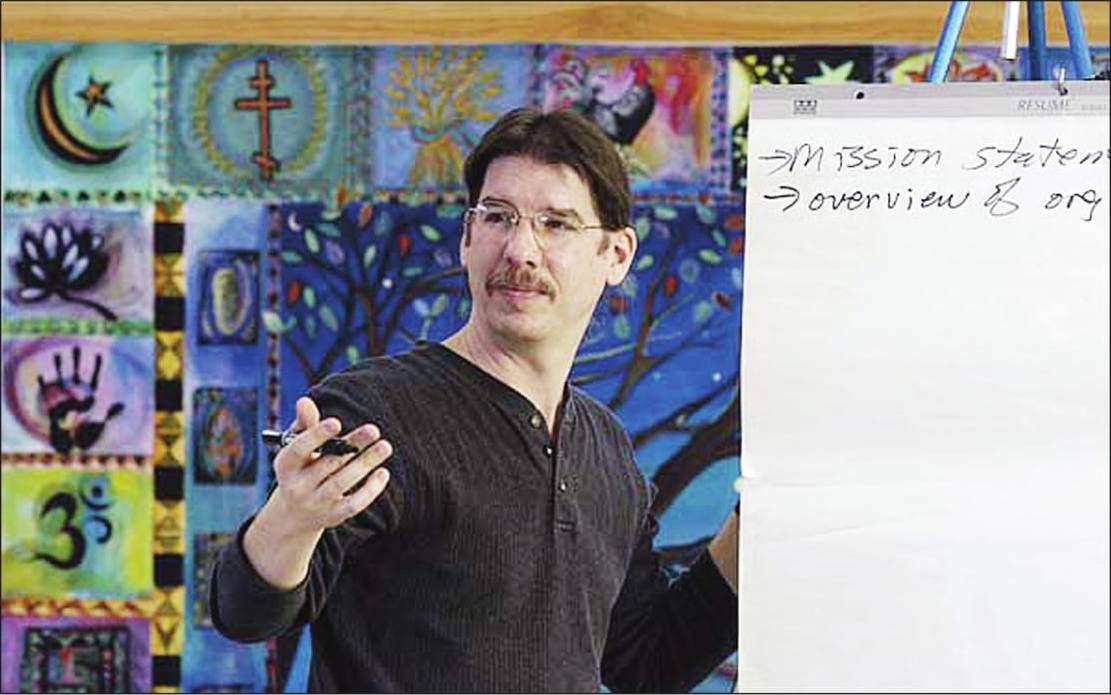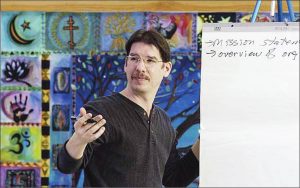
Library Speaker Will Lead Talk on Attracting, Retaining Young People
Dr. Randy Stoecker wants to stop northern Wisconsin’s “brain drain.”
The University of Wisconsin-Madison professor will be in Antigo on Tuesday presenting “Gaining and Maintaining Young Adults in Wisconsin,” which will review a recent study he and his colleagues conducted that identified key community qualities that attract bright, young adults to communities in Wisconsin.

Dr. Randy Stoecker will speak here Tuesday on attracting and retaining young people to the community.
The program will begin at 5:30 p.m. in the library meeting room. There will be an opportunity for questions.
“I’m looking forward to being up there,” Stoecker, a Munwonago native, told James Spychalla of the Library Board, “When I was a kid my parents were part of the community cottage—the old school kind where central heating meant the wood-burning stove in the center—on Big
Twin Lake near Phelps. Antigo was always the last stop on the long drive up.”
Stoecker, the first in his family to earn a college degree, specialized in community development, doing research and teaching with communities on issues that matter to them.
He joined the University of Wisconsin-Madison with a UW-Extension affiliation in 2005 after 17 years working in Toledo, Ohio, The professor received his first two degrees in counseling from the University of Wisconsin-Whitewater and his doctorate in sociology from the University of Minnesota.
A member of the Department of Community and Environmental Sociology, Stoecker conducts training and speaks frequently on community organizing and development, community-based participatory research and evaluation, high education community engagement strategies and community information technology.
He has also written extensively on community organizing and development and higher education engagement with communities.
In the report, Stoecker and colleagues found that only about 15 percent of Wisconsin communities are gaining and maintaining young adults.
The problem isn’t unique to rural areas, the study found. Communities in the state’s most urban area—Milwaukee County—fare as bad or worse in losing young adults. Communities that do better are much more likely to be near cities and freeways.
Qualities that are important for attracting young adults, the study found, include:
—perceived quality of schools.
—perceived affordability of housing.
—outdoor amenities such as parks and trails, with appreciation for both motorized and silent outdoor recreation.
—a small town sense of community and civic engagement.
—and proximity to cities that offer employment, entertainment and shopping.
Stoecker said Antigo can’t do a thing about its location—far from urban settings—but it is taking steps in some areas, including its trail system and “work on building an outdoor culture.”
And Tuesday, he hopes to bring cost-effective ideas to make even more things happen.
Source: Antigo Daily Journal, September 15, 2018 edition.
